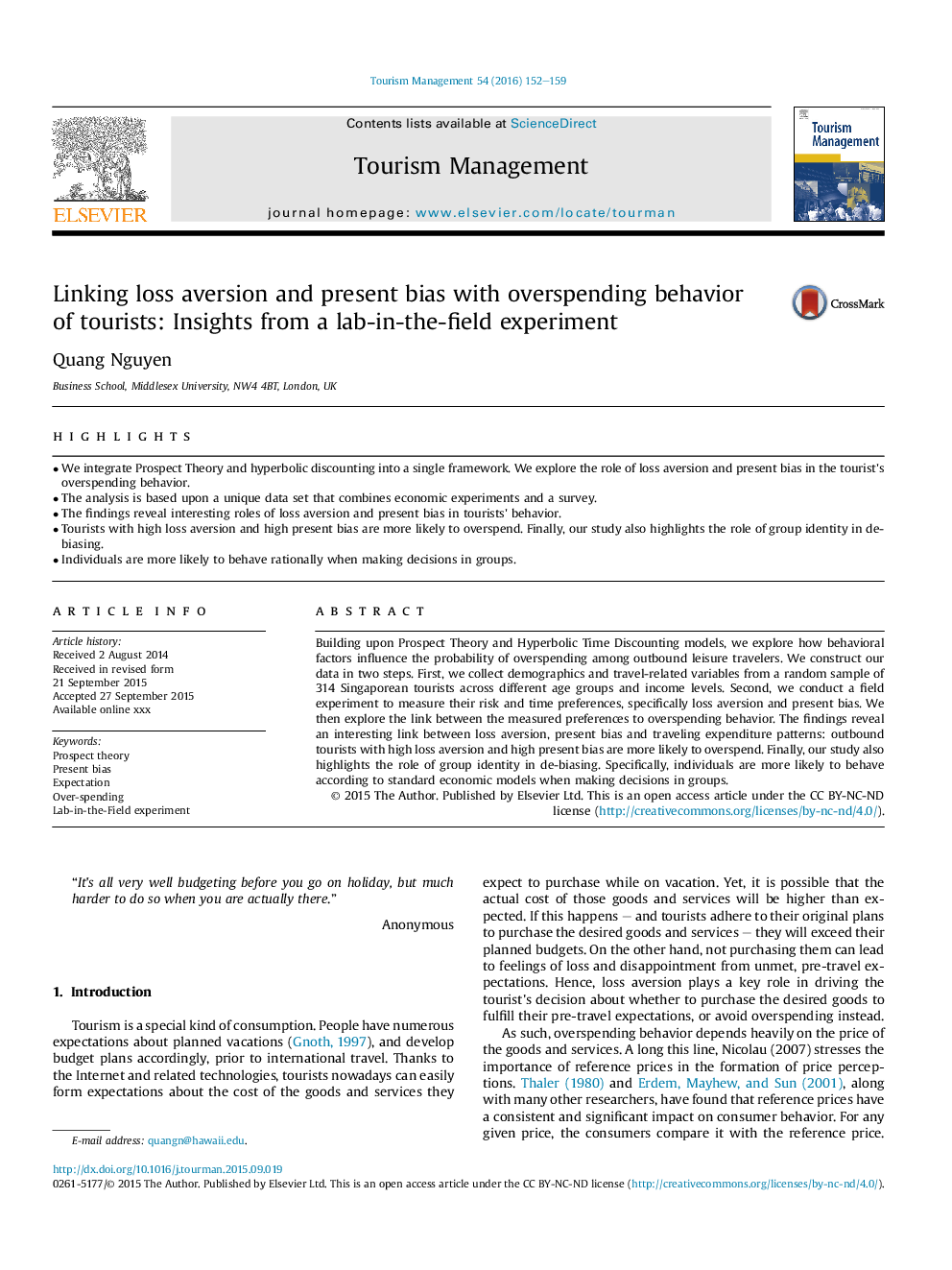| Article ID | Journal | Published Year | Pages | File Type |
|---|---|---|---|---|
| 7421637 | Tourism Management | 2016 | 8 Pages |
Abstract
Building upon Prospect Theory and Hyperbolic Time Discounting models, we explore how behavioral factors influence the probability of overspending among outbound leisure travelers. We construct our data in two steps. First, we collect demographics and travel-related variables from a random sample of 314 Singaporean tourists across different age groups and income levels. Second, we conduct a field experiment to measure their risk and time preferences, specifically loss aversion and present bias. We then explore the link between the measured preferences to overspending behavior. The findings reveal an interesting link between loss aversion, present bias and traveling expenditure patterns: outbound tourists with high loss aversion and high present bias are more likely to overspend. Finally, our study also highlights the role of group identity in de-biasing. Specifically, individuals are more likely to behave according to standard economic models when making decisions in groups.
Related Topics
Social Sciences and Humanities
Business, Management and Accounting
Strategy and Management
Authors
Quang Nguyen,
